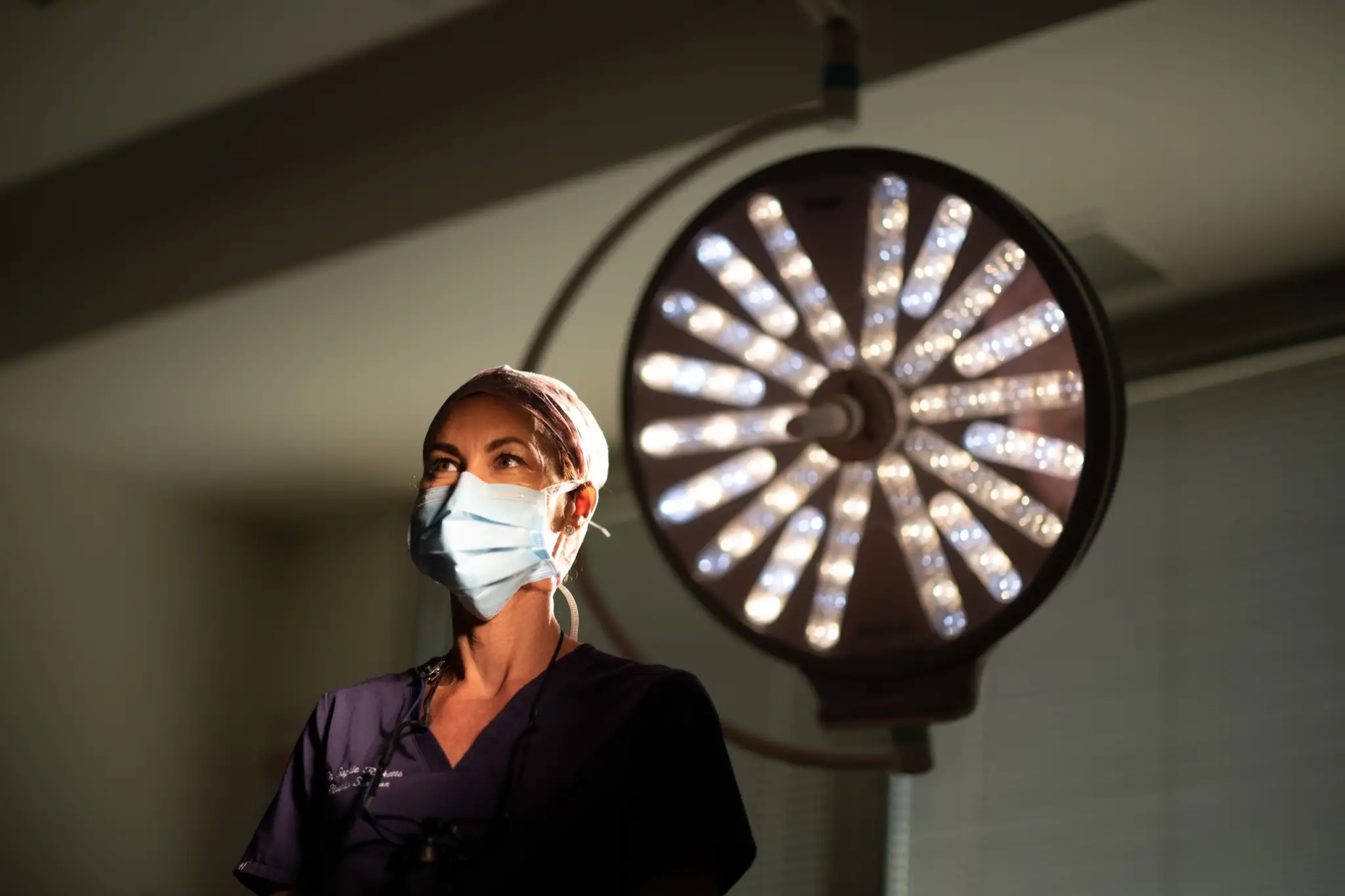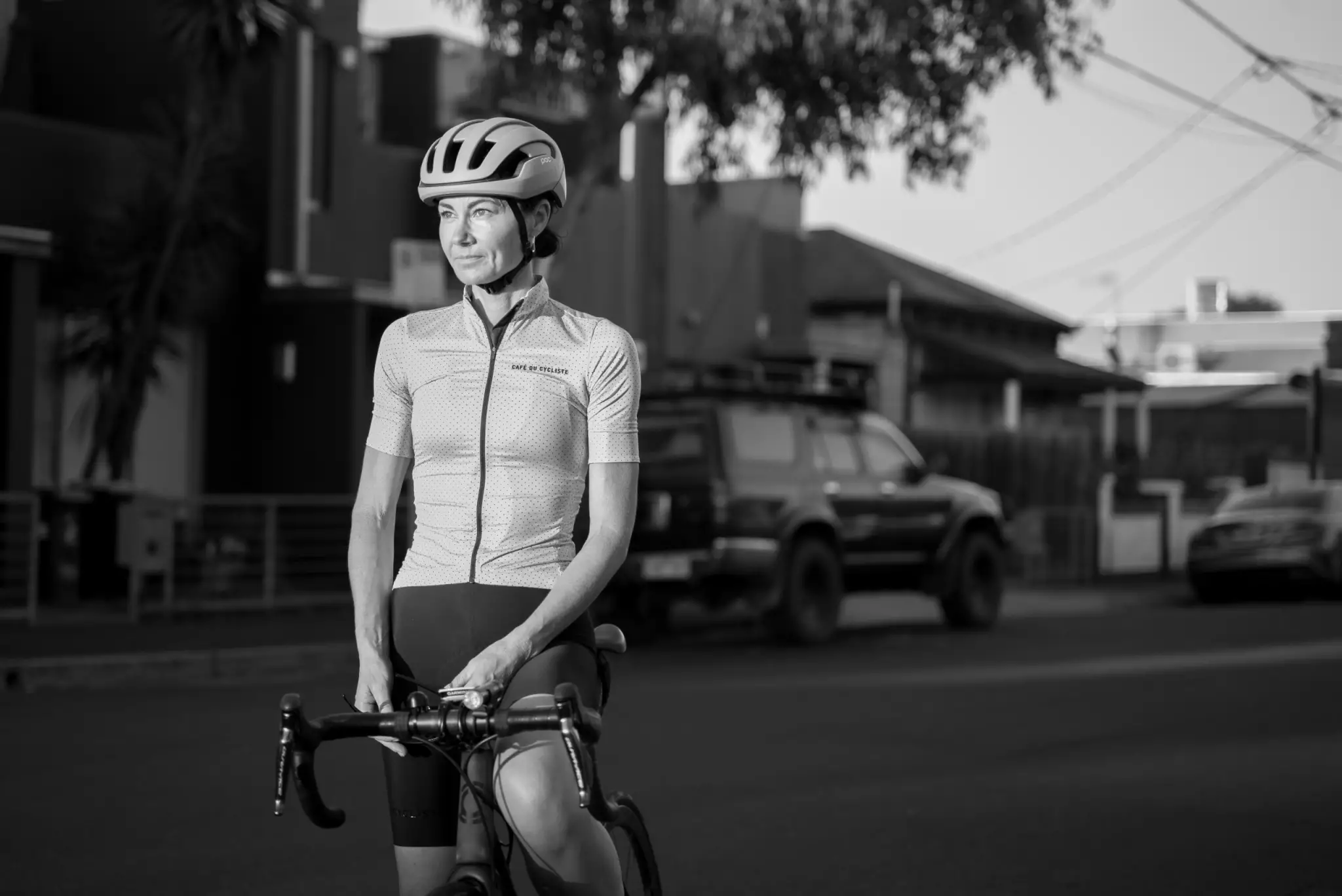
Prev post
Often misunderstood, plastic surgery is about far more than appearances. For alumna Dr Sophie Ricketts (’95), it’s work that restores confidence, heals trauma, and changes lives.
When you hear the words ‘plastic surgery’, what thoughts come to mind? For some, ‘self-confidence’, and ‘empowering’ might present themselves, but for many of us, living in a word fuelled by the pressures of social media, words such as ‘superficial’, and ‘vain’ might be the first to surface. We recently spoke with 1995 alumna and specialist plastic surgeon Dr Sophie Ricketts, and it quickly became clear just how misunderstood her profession can be. For many of her patients, plastic surgery is anything but superficial - it’s life-changing; healing trauma, rebuilding after cancer, and helping people feel more at home in their own skin. Dr Ricketts’ story and passion for her craft are not only a source of inspiration for aspiring medical students but also shine a much-needed light on an industry that is so frequently misunderstood.

Q. Let’s start with your school days. What are some of your fondest memories of your time at Launceston Church Grammar School?
A. I was at Grammar from Kindergarten - Grade 12, and some of my fondest memories come from those early years at Broadland. I still remember sitting on the mat in Kinder with Mardi Hogarth playing music on the piano for us to sing along to. Mardi was an amazing teacher and provided a beautiful, gentle start to school life.
In Grade 5, Mr Phillip Maxwell left a real impression. He was dynamic and worldly, with a broad, non-traditional teaching style. He encouraged us to look beyond the classroom, which I think really opened my eyes to a world outside of Launceston.
The Outdoor Education program was extraordinary and something I took for granted at the time. In Grade 10, I completed the Overland Track, which was an unforgettable experience.
In Grade 9, we hiked the Walls of Jerusalem and ended up snowed in, waiting in a hut for two days before trekking out in thigh-deep snow. Now, living outside Tasmania, I realise how unique it was to have access to this during my school days.
My fondest sporting memories are of my rowing days. I came to rowing later than most but was lucky enough to row with a group of outstandingly skilled and dedicated girls. In Grade 11 I rowed in a Four and, together with those three other girls, then joined the Eight in Grade 12, going on to win the School Girls Head of the River at Lake Barrington’s beautiful international rowing course. Rowing taught me a great deal about camaraderie, teamwork and common pursuit. It also allowed me to explore the extent of my physical limits and the psychology of sport – both as a team and an individual.
In Grade 12 I was School Co-captain with Jamie Roberts. We were good mates - he was the classic leader: well-rounded and respected. I never saw myself in that role and was genuinely shocked to be appointed, but Jamie and I complemented each other well and it was a great learning curve.
Q. Did you always have an interest in medicine or surgery? If not, what sparked that path?
A. I always enjoyed the sciences and had an interest in medicine from early on. I wasn’t the top of the class, but I worked hard. Around Grade 9, I had this idea that I wanted to help reconstruct people’s faces, whether from trauma or illness. I didn’t really know what kind of doctor that made me, but the seed was planted.
Looking back, I was lucky to have that direction in high school. It meant I could choose the right subjects and understand the scores I needed to aim for. I knew medical school was the first big stepping stone, and I worked my way up from there.
That focus came with compromises though. I wasn’t able to take subjects I also loved like Fine Art, because I needed to prioritise the sciences. Interestingly though, my work now is quite creative. There’s an artistic element to plastic surgery that brings things full circle in a way I didn’t expect.
Q. Plastic surgery can often be misunderstood. What drew you to this field, and what do you find most fulfilling about the work you do today?
A. It’s correct that plastic surgery is often misunderstood. Many people think it’s purely cosmetic, but it covers a wide range, from reconstructive surgery to hand surgery, and aesthetic procedures. It’s a large specialty, and while some surgeons focus solely on aesthetics, many of my colleagues do a mix, and some focus only on reconstruction.
It’s unfortunate that plastic surgery has become associated with the word ‘plastics’ in a way that sounds artificial. The term actually comes from the
Greek word meaning ‘to mould’. That really reflects what we do; moulding and shaping tissues, and restoring form and function. This is something we constantly work to educate the public about, as many misunderstand the breadth of our work.
Q. Your professional ethos - particularly around honesty, service, and ongoing education - resonates strongly with the values we nurture here at Grammar. Do you feel your time at school helped shape these principles?
A. For sure. Growing up in Tasmania and attending Grammar gave me a grounded perspective that I carry with me to this day. I spent time working on farms, which meant learning to relate to all kinds of people, from shearers to now surgeons. That ability to connect across a broad spectrum has been invaluable in my work.
At Grammar, and more broadly in Tasmania, there was a strong sense of community and humility. I think that shaped my approach to patient care. I’ve found that what people appreciate most is feeling heard. Many of my patients are going through a challenging and often emotional surgical journey, and empathy in how my team and I approach them becomes essential.
Q. You’ve done meaningful voluntary reconstructive surgeries in communities across the Asia Pacific. What has that experience taught you?
A. Before the political situation changed in Myanmar, I visited regularly to support a program training local surgeons from the ground up, with the goal of empowering them to carry on the work independently.
I found the experience deeply rewarding, though oddly enough, selfish, because I gained so much satisfaction from giving back. It was inspiring to see the dedication of the surgeons there, and how much could be achieved with so few resources in a third world setting. It is not a glamorous career, but they were deeply committed to their patients and the cause.
I truly felt I was making a difference both to the local community and to my own growth as a surgeon.
Q. You speak about the importance of giving patients honest and realistic expectations. In today’s world of curated perfection, how do you balance empathy with truth in your practice?
A. The social media era has changed things significantly. With phones and selfies, image has become everything, making it harder to manage realistic expectations. In Australia, social media standards of plastic surgery are heavily regulated, unlike some countries where image editing post-surgery is common. Part of my role is to set realistic expectations. If a patient wants to push beyond what I believe is safe or achievable, I make that clear from the start. I cannot promise what I cannot deliver. While they may find another surgeon, I am known for being honest about the risks and outcomes. Honesty usually prevents trouble in the long run.
Correcting something that has been a psychological trigger since childhood, like prominent ears or a large nose, is profoundly impactful. Patients sometimes break down in tears, sharing their stories of bullying or insecurity. While being able to fix that may not be saving a life, it can certainly change one. Above all, if a patient feels heard and understood, that makes a real difference. Sometimes they just need to express what they have carried for years before focusing on surgery.

Q. Looking back, what advice would you give to current students at Grammar - particularly those who might be dreaming of a future in medicine or surgery?
A. Medicine isn’t a career where you have to be top of the class. I wasn’t, but I worked hard and enjoyed learning. If you’re motivated and focused, there’s a good chance you’ll succeed.
In Grades 11 and 12, I had to make sacrifices. After the rowing season ended at the start of Grade 12, I made the difficult decision to drop sport, which was heartbreaking. But I had this self-fulfilling prophecy: I will get into medicine, and I will succeed. If you have the passion, it will come.
There’s a lot of talk about work-life balance these days, and I won’t sugar coat it, the training years are tough. You lose social time and friendships, and your career becomes the priority during your ‘prime years’, but once you finish your specialist training, life gets better and more flexible.
At the end of the day, it’s all about motivation and focus. Don’t let anyone tell you that you can’t do it; people certainly told me that more than once. If you’re determined and passionate, it will happen. I have no regrets, and life is good now.
Q. And finally, what does success mean to you? Has that definition changed since you left school?
A. In my early days, success was driven by a fear of failure. I wanted to succeed, and that pushed me forward. Now, I’m still moving forward, but success today means managing a balanced life, which is extremely important to me. As surgeons and doctors, we’re not always great at that balance, but you come to realise there is life beyond your job.
I still have a healthy fear of failure; I don’t want to let my patients down or fail in surgery and that continues to drive me. But over time, I’ve come to see that it’s only a part of life. It’s just as important to nurture relationships and the other parts of who we are.
